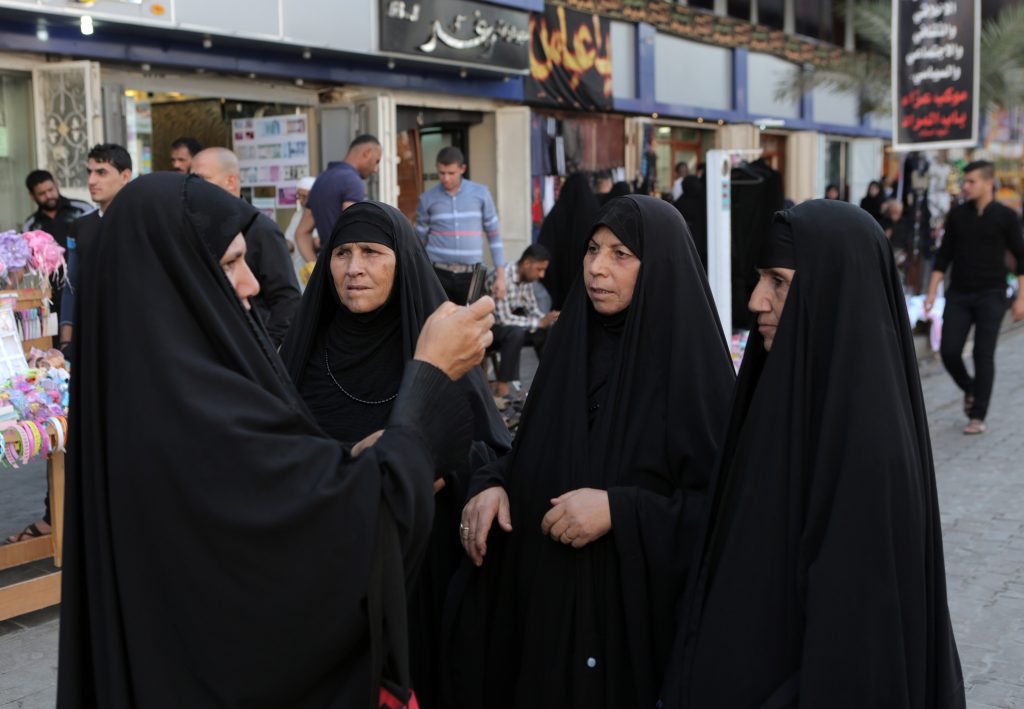BBG Research Series: Media consumption in Iraq
Are mobiles changing the way Iraqis get their news?
Iraqis are increasingly turning to the internet, social media and mobile phones to learn about news and other developments, although television remains their dominant source for information, according to research presented on Wednesday at a briefing conducted by the BBG and Gallup on media consumption in Iraq.
The briefing featured panelists Mohamed Younis, a Senior Analyst at Gallup who spoke about the opinions of Iraqi citizens on politics and the economy; the Director of Audience Research for the Middle East Broadcasting Networks, Diana Turecek, whose survey data covered all of Iraq; and Voice of America Research Director Bill Bell, whose data mostly compared Iraqi Kurdistan with non-Kurdish speakers in Iraq.
The research showed that 58 percent of all Iraqis and 71 percent of Iraqis ages 15 to 24 used the internet in the past week, compared with 18 percent and 27 percent, respectively, four years ago. At the same time, the social platforms Facebook and YouTube are rising in popularity in many of Iraq’s provinces and Iraqi Kurdistan.
“Iraq’s past-week internet usage is now on par with countries such as Jordan and Lebanon and in a couple of years may even increase to levels that we see in some of the more developed Gulf countries,” Turecek said.
Iraq’s greater internet usage is due partly to better cell phone coverage across the country, Turecek said. She noted that 48 percent of Iraqis used mobile phones in the past week to access the internet, compared with 34 percent a year ago.

Despite the growth in internet gains, the findings also concluded that television is by far the most popular media source in Iraq, even among youth. Turecek found that 89 percent of Iraqis used TV over the past week for news, compared with 57 percent for the internet.
According to VOA’s Bell, television is also the mostly highly accessed medium in Iraqi Kurdistan, but Facebook and other forms of social-media based news sharing are increasingly important.
In the Kurdish region, where virtually all homes have a television, the TV sources Kurds rely on for news are much different than the rest of Iraqis. In Iraqi Kurdistan, his research showed, seven of the top 10 TV stations viewed in the past week by Kurds were Kurdish-language stations; the other three were pan-Arabic, not Iraqi, stations. The top 10 stations watched by other Iraqis in the past week were all Arabic-language outlets, five of which are domestic Iraqi stations.
“This illustrates quite dramatically the extent to which Iraqi Kurds and other Iraqis live in entirely different media universes,” Bell said.
Bell also presented figures that showed the extent to which people in Iraqi Kurdistan, where 72 percent of homes use the internet and mobile phones are ubiquitous, rely on social media to access news. He said 46 percent of Iraqi Kurds turned to Facebook for news at least once a week, making that platform one of the top five news sources for that population. In contrast, non-Kurdish Iraqis were heavier YouTube users than Kurds, with 19 percent using the service to access news at least weekly – as opposed to nine percent of Kurds who used YouTube that often.
Gallup’s Younis focused mostly on living and economic conditions in Iraq, as well as Iraqis’ views of Prime Minister Haider al-Abadi and the military. Gallup World Poll data released just last week produced some startling findings: assessments of Iraq’s job market and economy are the worst Gallup has collected since 2009; approval of Prime Minister al-Abadi is below Prime Minister Nouri al-Maliki before he left office in 2014; and most Iraqis lack confidence in the honesty of elections.
About the USAGM
The U.S. Agency for Global Media (USAGM), an independent international media organization overseen and funded by the US government, puts objective, professional news and information content to work on behalf of U.S. global interests and national security. USAGM networks include the Voice of America, Radio Free Europe/Radio Liberty, the Office of Cuba Broadcasting (Radio and TV Martí), Radio Free Asia, the Middle East Broadcasting Networks (Alhurra TV and Radio Sawa) and the Open Technology Fund. USAGM programming has a measured audience of 420 million in more than 100 countries and in 64 languages.
